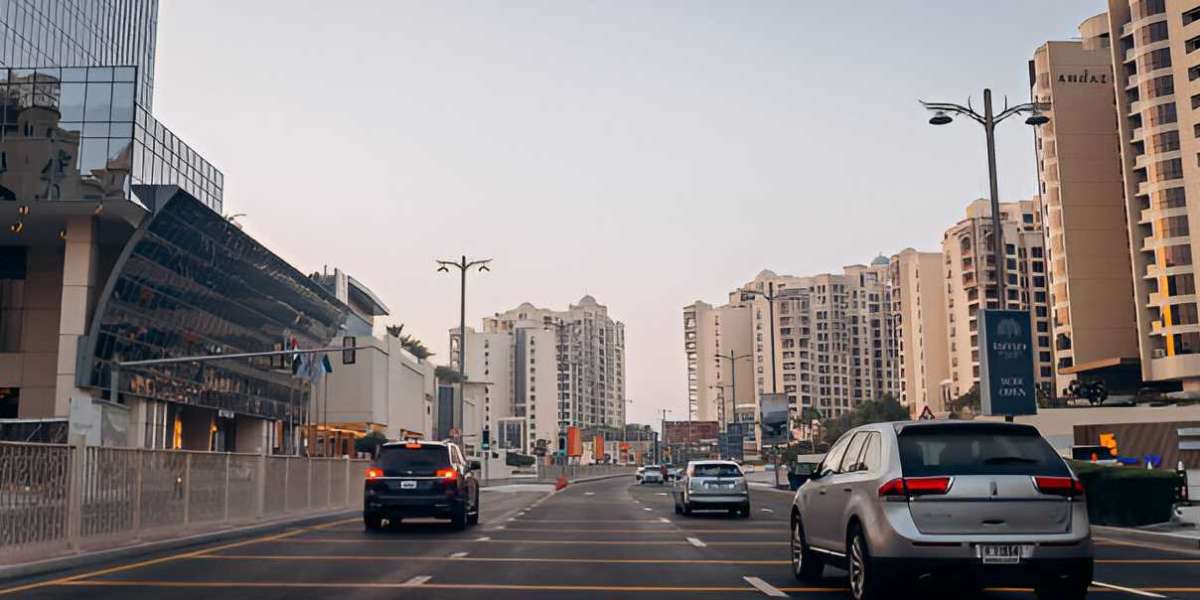When you’re visiting Dubai for the first time, one of the most convenient and exciting ways to explore this bustling metropolis is by renting a car. Whether you're traveling for business, leisure, or both, the ability to rent a car gives you the flexibility to travel at your own pace and visit attractions that might be off the beaten path. If you're unfamiliar with Dubai’s roads, rental procedures, or local driving conditions, here are some essential car hire tips to ensure you have a smooth and enjoyable experience while driving in Dubai.
1. Understand Dubai’s Driving Rules and Regulations
Before picking up your rental car, it’s important to familiarize yourself with the driving laws in Dubai. Dubai is known for its strict traffic regulations, and adherence is crucial to avoid fines or legal issues.
- Speed Limits: Dubai has well-marked speed limits, typically 60-80 km/h in urban areas and 100-120 km/h on highways. Speeding is heavily penalized, with fines and possible license suspension.
- Seat Belts: The use of seat belts is mandatory for all passengers. Failure to wear a seatbelt can result in fines.
- Alcohol and Drugs: Dubai enforces a zero-tolerance policy towards drinking and driving. Even trace amounts of alcohol in the blood can lead to heavy penalties.
- Mobile Phones: Using a mobile phone while driving is illegal unless you’re using a hands-free device.
- Parking: Dubai is known for its strict parking regulations. Be cautious about where you park to avoid fines or your car being towed.
2. Choose the Right Car for Your Needs
When renting a car in Dubai, choosing the right vehicle is key to ensuring comfort and convenience throughout your trip. There’s a wide range of cars available, from compact cars to luxury models, so consider the following factors before making a decision:
- Type of Terrain: Dubai's roads are modern and well-maintained, but if you're planning to explore the desert or remote areas, you might want to consider renting a 4x4 vehicle.
- Number of Passengers: If you're traveling with family or a group of friends, opt for a spacious vehicle such as an SUV or a minivan.
- Fuel Efficiency: If you're planning to drive extensively, choose a fuel-efficient model to minimize fuel expenses.
- Luxury vs. Economy: If you're here for business or special occasions, consider renting a luxury car. However, if your primary concern is cost, an economy car might be a better option.
3. Ensure You Meet the Rental Requirements
To rent a car in Dubai, there are a few requirements you must meet. Make sure you’re prepared before arriving at the car rental desk.
- Age Requirements: The minimum age to rent a car in Dubai is usually 21 years, though this can vary depending on the rental company and car category. For luxury cars, the minimum age may be 25 years.
- Driving License: You must have a valid driving license. Tourists can use an International Driving Permit (IDP) along with their home country’s driving license for up to six months. For longer stays, a UAE driving license may be required.
- Credit Card: Most rental agencies in Dubai will ask for a valid credit card in the driver’s name as a security deposit.
- Insurance: Ensure that you have adequate insurance coverage for the vehicle. Most rental companies offer Collision Damage Waiver (CDW) and Third-Party Liability Insurance, but you can also opt for additional coverage for peace of mind.
4. Understand the Rental Agreement
Before you finalize your car hire in Dubai, take the time to read and understand the rental agreement carefully. This document outlines your rights and responsibilities as a renter, as well as any extra charges or conditions that may apply.
- Rental Duration: Confirm the rental duration and the penalties for returning the car late.
- Fuel Policy: Most rental companies have a full-to-full fuel policy, meaning you should return the car with a full tank. Some companies may offer a full tank of fuel at pick-up, but you’ll be charged for any unused fuel.
- Mileage Limitations: Some rental agreements impose a mileage limit. Ensure you are aware of this limit to avoid extra charges if you exceed it.
- Insurance Excess: Check the amount of the excess or deductible in case of damage or accidents. This is the amount you will be liable for before the insurance coverage kicks in.
5. Inspect the Car Before You Drive
Once you pick up your rental car, it’s essential to inspect the vehicle thoroughly before hitting the road. Document any existing damage, such as scratches or dents, and report it to the rental company. This will protect you from being held responsible for pre-existing damages.
- Check the Tires: Ensure the tires are in good condition and properly inflated.
- Interior Condition: Check for any damage to the seats, dashboard, or any onboard equipment such as the air conditioning, radio, and navigation system.
- Fuel Level: Confirm the fuel level to avoid any surprises when returning the car.
- Keys and Documents: Make sure you have a set of keys and any documents required, such as the car's registration and insurance information.
6. Use GPS or a Navigation App
While Dubai has well-marked roads, it's still a good idea to have a reliable navigation system in your rental car. Many rental agencies offer GPS units, or you can use your smartphone with navigation apps like Google Maps or Apple Maps. These apps are particularly helpful in a city like Dubai, where new roads and construction projects are constantly underway.
- Offline Maps: If you don’t have access to mobile data, download offline maps of Dubai to ensure you have directions even when you’re out of service range.
- Traffic Alerts: Be aware of peak traffic hours and consider planning your trips around these times to avoid congestion, especially on the main highways such as Sheikh Zayed Road.
7. Understand Tolls and Road Charges
Dubai has a number of tolls and road charges that you should be aware of when renting a car. The Salik toll system is an automatic tolling system that charges drivers for using certain roads and bridges in Dubai.
- Salik Tolls: When driving through toll gates, the amount will be automatically deducted from your rental car’s account. Make sure to ask the rental company about how these charges will be billed.
- Parking Fees: Some public parking areas in Dubai may require you to pay fees. Always check the parking meters or use parking apps to avoid fines.
8. Plan Your Parking
Finding parking in Dubai can be challenging, especially in busy areas like Downtown Dubai or near popular attractions. Fortunately, there are plenty of parking facilities, but they can get crowded.
- Public Parking: Look for public parking areas with clear signage and reasonable rates. Some malls and hotels offer free parking for customers.
- Valet Parking: Many hotels and upscale restaurants in Dubai provide valet parking services. This can be a convenient but more expensive option.
- Avoid Illegal Parking: Always park in designated parking areas. Parking in non-designated spots or obstructing traffic can result in hefty fines or your vehicle being towed.
9. Drive with Caution in Dubai's Desert
If you're venturing out of the city into the desert or on a road trip to nearby attractions, be prepared for changing road conditions. The desert can be beautiful, but driving in such areas requires extra caution.
- Stay on Marked Roads: Avoid driving off-road unless you're in a 4x4 vehicle specifically designed for desert terrain.
- Water and Supplies: Make sure you have plenty of water, especially if you're traveling long distances into remote areas.
- Emergency Kit: It’s always good to have an emergency kit in your rental car, including a first-aid kit, flashlight, and basic tools.
10. Return the Car on Time
Finally, always return the rental car on time to avoid additional charges. Most rental companies in Dubai are strict about return times, and you may be charged for an extra day if you’re even a few hours late.
- Clean the Car: Some rental agencies may require the car to be returned in the same condition it was rented. Ensure the car is clean, and the tank is full to avoid cleaning or refueling charges.
Conclusion
Renting a car in Dubai offers unmatched flexibility and convenience for exploring this vibrant city. By following these top car hire tips for first-time visitors, you can ensure a hassle-free experience on the road. From understanding the driving laws to choosing the right vehicle and ensuring you meet the rental requirements, these simple steps will help you get the most out of your Dubai experience. So, whether you’re here for a short business trip or an extended vacation, be sure to rent a car in Dubai and enjoy the freedom of discovering everything this modern city has to offer.



